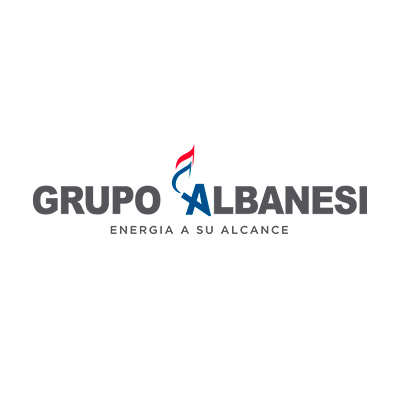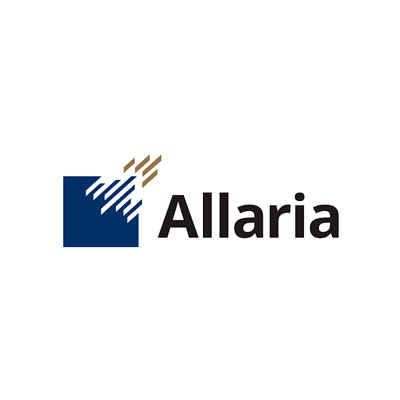Legal Counsel to Banco CMF S.A. in the Issuance of Class 17 and Class 18 Notes for US$ 29,101,826

Legal counsel to Banco CMF S.A. in the issuance of Class 17 Notes, denominated, subscribed, and payable in U.S. Dollars in Argentina, at an interest rate of 4.50% maturing on August 6, 2025, for a total amount of US$ 19,376,200, and Class 18 Notes, denominated, subscribed, and payable in Argentine Pesos, at a variable interest rate (“TAMAR Privada”) plus a margin of 3.25% maturing on February 6, 2026, for a total nominal value of AR$ 10,250,000,000, under the Global Notes Program for an amount of up to US$100,000,000 (or its equivalent in other currencies or units of measure or value).
Grupo Albanesi Secures a US$ 80,000,000 Loan for the Refinancing of Certain short-term Liabilities due 2025

Counsel to Grupo Albanesi (Generación Mediterránea S.A., Central Térmica Roca S.A. y Albanesi Energía S.A.) in the granting of a syndicated loan for a committed amount of US$ 59,000,000 and a máximum amount of US$ 80,000,000 (the “Loan”) by Banco Hipotecario S.A., Banco de Galicia y Buenos Aires S.A.U. (the “Arrangers”), Banco Supervielle S.A., Banco Santander Argentina S.A., Banco de la Provincia de Córdoba S.A., Banco de la Ciudad de Buenos Aires, Banco de Servicios y Transacciones S.A., and Banco de la Provincia de Buenos Aires (collectively with the Arrangers, the “Lenders”), for the refinancing of certain short-term liabilities due 2025.
The Loan, entered into on January 21, 2024, was partially disbursed by the Lenders on the such date, and the funds were successfully applied to the repayment of the certain short-term liabilities due 2025.
The Loan has a grace period of 24 months, matures in 2028, and is secured by a fiduciary assignment of its collection rights under certain PPAs (Power Purchase Agreements) of Generación Mediterránea S.A. and Central Térmica Roca S.A.
Consequently, Grupo Albanesi secured the necessary funding to refinance certain short-term liabilities and continues its process of improving its long-term debt profile and strengthening its financial position.
Legal Advice in Petrolera Aconcagua Energía S.A.’s Notes Issuance


Counsel in the issuance of Petrolera Aconcagua Energía S.A.’s Class XVII simple notes for a total amount of USD 29,244,801 (twenty-nine million two hundred forty-four thousand eight hundred one U.S. Dollars) denominated and payable in U.S. Dollars, at a fixed interest rate of 9.00% nominal annual rate, maturing on January 30, 2028, under its Global Notes Program (not convertible into shares), for up to a maximum amount of U.S. Dollars 500,000,000 (or its equivalent in other currencies or units of value)
Banco de Servicios y Transacciones S.A., acted as arranger, settlement agent and placement agent of the Notes, Banco Santander Argentina S.A. and Puente Hnos S.A. acted as arrangers and placement agents of the Notes; and Banco de Galicia y Buenos Aires S.A.U., Banco Mariva S.A., Allaria S.A., SBS Trading S.A., Banco de la Provincia de Buenos Aires, Banco Supervielle S.A., Invertironline S.A.U., BACS Banco de Crédito y Securitización, Cohen S.A., Industrial Valores S.A., Mills Capital Markets S.A., NEIX S.A., PP Inversiones S.A., Latin Securities S.A, Option Securities S.A. and Banco Patagonia S.A. acted as placement agents of the Notes.
Normalization of the Wholesale Electricity Market
On January 29, 2025, CAMMESA published on its website complementary information to Resolution 21/2025 of the Secretary of Energy (“SE”) (the “Resolution 21”) (Available comments on this regulation here).
Among the published documentation, there is a note sent by the SE to CAMMESA (the “SE Note”) outlining the need for gradual normalization to encourage investment and reliability of the Wholesale Electricity Market (“WEM”).
Attached to the SE Note are the Guidelines for the Normalization of the WEM and its Progressive Adaptation (the “Guidelines”) prepared by the SE, which detail the modifications in fuel management, demand in the WEM, determination of prices and operation of both the Corporate PPA Market (“MAT”) and the Spot Market.
Additionally, the SE enclosed a Technical Report on the WEM situation (the “Technical Report”). This Technical Report analyzes regulatory and operational aspects to meet regulatory objectives, focusing on system transparency and efficiency, decentralization of CAMMESA, energy prices, fuel management review, Spot Market and MAT mechanisms adaptation, and infrastructure planning.
Associations represented in CAMMESA have thirty (30) days from January 30, 2025, to provide non-binding opinions on these documents for the WEM normalization process. At the same time, CAMMESA will have forty-five (45) days to prepare: a) a detailed report with a dispatch and transactional management plan; b) an analysis of the impact of the measures on the supply and demand of the WEM, and c) a report on the considerations of the WEM Associations.
Finally, the SE announced the issuance of new regulations for the normalization of the WEM to be effective as of November 1, 2025, regardless of the possible anticipated measures to eliminate restrictions.
***
For additional information, please contact Nicolás Eliaschev, Javier Constanzó, Daiana Perrone, Victoria Barrueco and/or Manuel Crespi.
Deregulation of Electric and Hybrid Electric Vehicles Charging Activity
On January 29, 2025, the Secretary of Energy published Resolution 22/2025, abrogating Resolution 817/2023 (the “Resolution 817”).
Resolution 817 had created the National Registry of Charging Infrastructure for Electric Vehicles (“EV”) and Hybrid Electric Vehicles (“HEV”) and imposed the obligation to charge such vehicles exclusively at service stations.
In line with the state reorganization principles set forth in the Foundations Law the elimination of Resolution 817 deregulates the EV and HEV charging activity, allowing any establishment to provide such services.
***
For additional information, please contact Nicolás Eliaschev, Javier Constanzó, Daiana Perrone, Victoria Barrueco, and/or Giuliana Manzolido.
New measures for the normalization of the Electricity Market
On January 28, 2025, the Secretary of Energy published Resolution 21/2025 (“Resolution 21”), which introduces the following key changes in the wholesale electricity market:
- Corporate PPA Market: Partially reinstates the Corporate PPA Market (“MAT”, or Mercado a Término) for thermal, hydroelectric and nuclear power plants with commercial date achieved after January 1st, 2025.
- Fuel management for Thermal Generators: As of March 1st, 2025, thermal generators operating in the Spot market (those without a PPA) will be allowed to manage their own fuel. The costs will be valued based on the reference price according to the variable production costs submitted, including transport and distribution costs, taxes and associated fees. CAMMESA will remain as the last-resort supplier, as well as the supplier of fuel for thermal generation PPAs.
- Phasing out the “Energy Plus” Regime: As of October 31st, 2025, the “Energy Plus” regime will be abrogated, although existing contracts will remain valid until their specified termination dates.
Resolution 21 is an initial but significant step in the National Government’s ongoing efforts to normalize the wholesale electricity market in a direction that fosters competition and private investment. As a result, additional and supplementary regulations are expected to be adopted in the short to medium term.
***
For additional information, please contact Nicolás Eliaschev, Javier Constanzó, Daiana Perrone, Victoria Barrueco, or Manuel Crespi.
MSU Energy Secures a US$ 222,000,000 Loan for the Refinancing of its International Notes due 2025
 Counsel to MSU Energy S.A. in the granting of a syndicated loan of US$ 222,000,000 (the “Loan”) by Industrial and Commercial Bank of China (Argentina) S.A.U., Banco de Galicia y Buenos Aires S.A.U., and Banco Santander Argentina S.A. (the “Arrangers”), together with Banco BBVA Argentina S.A., Banco Hipotecario S.A., Banco de la Nación Argentina, Banco de la Ciudad de Buenos Aires, Banco de Valores S.A., and Banco de la Provincia de Buenos Aires (collectively with the Arrangers, the “Lenders”), for the refinancing of its international notes due 2025.
Counsel to MSU Energy S.A. in the granting of a syndicated loan of US$ 222,000,000 (the “Loan”) by Industrial and Commercial Bank of China (Argentina) S.A.U., Banco de Galicia y Buenos Aires S.A.U., and Banco Santander Argentina S.A. (the “Arrangers”), together with Banco BBVA Argentina S.A., Banco Hipotecario S.A., Banco de la Nación Argentina, Banco de la Ciudad de Buenos Aires, Banco de Valores S.A., and Banco de la Provincia de Buenos Aires (collectively with the Arrangers, the “Lenders”), for the refinancing of its international notes due 2025.
The Loan, entered into on November 7, 2024, was disbursed by the Lenders on December 23, 2024, and the funds were successfully applied to the redemption of the portion of MSU Energy S.A.’s bonds not voluntarily exchanged for New Notes, maturing 2025 with an interest rate of 6.875% for an aggregate amount of US$ 600,000,000 (the “2025 Notes”).
Simultaneously, we advised MSU Energy S.A. in the issuance of a secured international bond at a 9.750% interest rate, maturing 2030, for an aggregate amount of US$ 400,000,000 (the “New Notes”), which consisted of (a) an exchange offer of the 2025 Notes, which were voluntarily tendered in exchange for New Notes for an aggregate principal amount of US$223,352,460 (the “Exchange Offer”); and (b) the issuance of additional New Notes for an aggregate principal amount of US$ 176,647,540 (the “New Money Issuance”).
The US$ 222,000,000 Loan, together with the New Money Issuance, were applied to the redemption of such nominal amounts of 2025 Notes not validly tendered and accepted for exchange pursuant to the Exchange Offer.
Consequently, MSU Energy S.A. secured the necessary funding to refinance the entirety of its 2025 Notes and completed its complex refinancing process, significantly enhancing its long-term debt profile and strengthening its financial position for future growth.
Legal Counsel to Banco CMF S.A. in the Issuance of Series 16 Notes for US$ 20,000,000

Legal counsel to Banco CMF S.A. as issuer, placement agent and settlement agent in the issuance of its Series 16 floating rate Notes for US$ 20,000,000 due June 20, 2025. The Series 16 Notes were issued on December 20, 2024 under the Global Notes Program for an amount of up to US$100,000,000.
Legal Advice in the Issuance of MSU Green Energy S.A.U. Series III Notes for US$21,580,463 which Qualify as Green Bonds











Counsel to Allaria S.A., as settlement agent and placement agent, and Banco de Galicia y Buenos Aires S.A.U., Invertironline S.A.U., Banco Santander Argentina S.A., Banco Supervielle S.A., Banco BBVA Argentina S.A., Banco de Valores S.A., Bull Market Brokers S.A., Banco Piano S.A., Neix S.A., and Balanz Capital Valores S.A.U., as placement agents in the issuance of MSU Green Energy Solar S.A.U. 8.50% Series III Notes for US$21,580,463 due December 20, 2028 (indistinctively, the “Series III Notes” or the “Notes”), issued under the Global Notes Program for an amount of up to U$S600,000,000 (or its equivalent in other currencies or other unit value).
Series III Notes qualify as Green Bonds.
MSU Energy S.A. Makes Exchange Offer and New Offering of Senior Secured Notes for US$400,000,000

Counsel to MSU Energy S.A. as issuer in the issuance of its 9.750% Senior Secured Notes due 2030 for an aggregate principal amount of US$400,000,000. The transaction was launched on November 8 and closed on December 12.
The transaction consisted of a liability management operation that included:
- an exchange offer of the 6.875% Senior Notes due 2025 (the “2025 Notes”), which were voluntarily tendered in exchange for 9.750% Senior Secured Notes due 2030 (the “New Notes”) for an aggregate principal amount of US$223,352,460 (the “Exchange Offer”); and
- the issuance of additional New Notes for an aggregate principal amount of US$ 176,647,540 (the “New Money Issuance”), yielding net cash proceeds that, together with the US$222 million available for borrowing under MSU Energy’s Local Syndicated Loan dated November 7, 2024, will be sufficient to redeem any 2025 Notes that were not validly tendered and accepted for exchange pursuant to the Exchange Offer.
The Exchange Offer was launched on November 8, 2024, and closed on December 10, 2024, while the New Money Issuance pricing was on November 25, 2024. The issuance of the New Notes under the New Money Issuance took place on December 5, 2024, and the issuance of the New Notes under the Exchange Offer took place on December 12, 2024, both totaling an aggregate principal amount of US$400,000,000.
The New Notes were issued at a fixed annual interest rate of 9.750%, maturing on December 5, 2030, and are secured by a fiduciary assignment of receivables under certain PPAs and pledges over certain equipment of the Issuer´s Barker, Villa Maria and General Rojo power plants.
This successful transaction marks the completion of a complex refinancing process, enabling MSU Energy to significantly enhance its long-term debt profile and strengthen its financial position for future growth.
In the issuance of the New Notes, Citibank, N.A. acted as trustee, paying agent, registrar, and transfer agent; The Branch of Citibank, N.A., established in the Republic of Argentina acted as co-registrar, Argentine paying agent, Argentine transfer agent, trustee in Argentina, collateral agent and onshore security trustee and representative of the trustee in Argentina; Citigroup Global Markets Inc., J.P. Morgan Securities LLC, Santander US Capital Markets LLC, Itau BBA USA Securities, Inc. and BBVA Securities Inc. acted as dealer managers and initial purchasers; Balanz Capital Valores S.A.U., Banco Santander Argentina S.A., Allaria S.A., Banco de Galica y Buenos Aires S.A.U., Industrial and Commercial Bank of China (Argentina) S.A.U. and Banco Supervielle S.A. acted as local placement agents.



